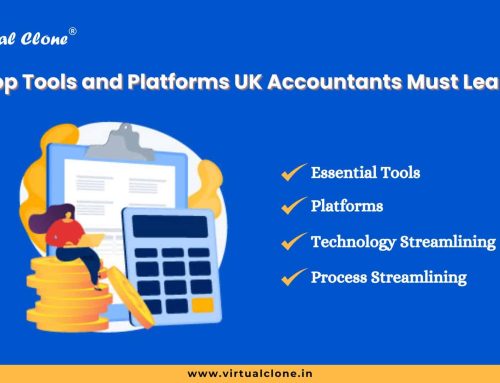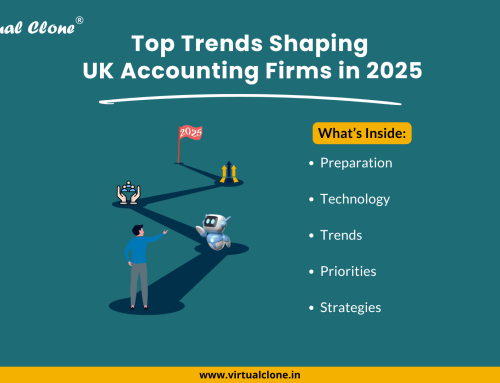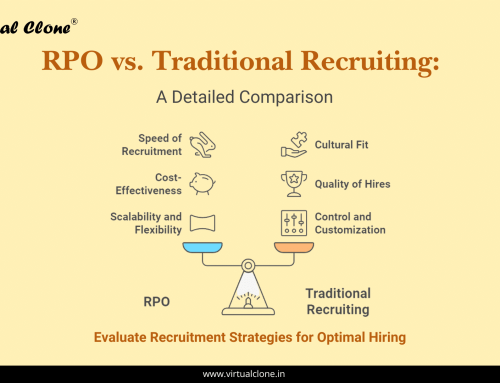As technology continues to evolve, the accounting profession is undergoing a profound transformation, driven largely by the rise of artificial intelligence (AI). Once seen as the custodians of ledgers and financial reports, accountants today are moving beyond traditional number-crunching roles into more strategic, analytical, and consultative positions. The impact of AI on accounting is revolutionizing the industry, reshaping how accountants work, and adding new dimensions to their responsibilities.
In this article, we will explore how AI is transforming the role of accountants, the new skills required for the future, and the benefits that these changes bring for both professionals and businesses.
1. Automation of Routine Tasks: Freeing Up Time for Strategic Work
Traditionally, accountants spent a significant amount of time performing manual tasks, such as data entry, reconciliation of accounts, and compiling financial reports. These repetitive and time-consuming activities, while crucial, left little room for more value-added services like financial planning and advising.
With the introduction of AI, these routine tasks are now being automated. AI-powered tools can process large volumes of data quickly and accurately, drastically reducing the time accountants need to spend on these tasks. For instance, AI algorithms can automatically classify transactions, reconcile bank accounts, and generate financial statements, often with greater precision than human efforts alone.
What it means for accountants:
- Accountants are increasingly being freed from mundane tasks, allowing them to focus on higher-value activities.
- The shift toward automation opens up opportunities for accountants to take on more strategic roles within organizations, providing insights and analysis that can help guide business decisions.
2. Real-time Data Analysis: Moving from Historical Reporting to Predictive Analytics
In the past, accounting was largely a backward-looking function, concerned with generating financial reports based on historical data. While this is still an important aspect of the role, AI is helping accountants move beyond historical reporting toward real-time analysis and even predictive analytics.
AI can analyze large datasets in real-time, identifying trends and patterns that may not be immediately obvious to human analysts. This capability allows accountants to provide insights into the future financial performance of a business, offering predictive models and proactive recommendations that can help organizations anticipate challenges and seize opportunities.
What it means for accountants:
- Accountants will become proactive advisors, using AI-powered data analytics to offer predictive insights and guide financial decision-making.
- Their expertise will shift from focusing on past performance to helping organizations optimize their future financial strategies.
3. AI for Accountants Enhancing Accuracy & Compliance: Reducing Human Error
One of the biggest challenges in accounting is ensuring accuracy and maintaining compliance with ever-changing regulations. Human error, even when unintentional, can result in costly mistakes or compliance violations.
AI’s ability to process and analyze data with a high degree of precision helps reduce the risk of errors. AI tools can automatically flag discrepancies, ensure compliance with relevant accounting standards, and even prepare reports for audits. By leveraging machine learning, AI can adapt to new regulations and detect anomalies that may indicate potential fraud or misreporting.
What it means for accountants:
- Accountants will be able to ensure higher levels of accuracy in financial reporting, with AI acting as a safety net to minimize errors and streamline compliance processes.
- Auditors and financial controllers will use AI to improve the efficiency of audits and detect fraudulent activities faster.
4. AI-Driven Insights for Advisory Services: Elevating the Accountant’s Role
As businesses become more reliant on data-driven decision-making, accountants are increasingly expected to provide advisory services that go beyond traditional accounting. AI’s capacity to analyze vast amounts of data and extract actionable insights is helping accountants shift toward a more consultative role.
AI tools can generate insights related to cash flow management, investment strategies, and profitability forecasts, empowering accountants to serve as trusted advisors. Businesses can lean on accountants to offer tailored advice, not just on financial matters, but on the broader implications of financial decisions, such as risk management, operational efficiency, and long-term growth strategies.
What it means for accountants:
- Accountants will play a more integral role in business strategy, using AI-driven insights to advise on complex financial and operational decisions.
- They will transition from being simply financial record-keepers to strategic partners who help guide organizational growth.
5. New Skills Required: The Rise of the AI for Accountants
As AI transforms the accounting landscape, the skills required for success in the profession are also changing. While traditional accounting expertise remains critical, accountants now need to develop a range of new skills to stay relevant in the age of AI.
Some of the essential skills include:
- Data analytics: Accountants must be able to interpret data analytics tools and understand how AI algorithms work to extract meaningful insights from large datasets.
- Technology proficiency: Familiarity with AI tools, cloud accounting software, and other emerging technologies is becoming increasingly important. Accountants will need to integrate these tools into their workflows effectively.
- Strategic thinking: As the role of accountants shifts toward advisory services, they will need to develop strong strategic thinking and decision-making skills to offer valuable business guidance.
- Adaptability: The rapid pace of technological change means that accountants must remain adaptable and willing to continuously learn new tools and approaches.
What it means for accountants:
- Accountants will need to invest in upskilling and reskilling to meet the demands of the modern workplace.
- Those who can leverage AI and other advanced technologies will have a competitive edge in the job market.
6. Collaboration Between AI and Human Accountants: The Best of Both Worlds
While AI offers many advantages, it’s important to recognize that it is not a replacement for human accountants. Rather, it is a tool that enhances their capabilities. The human element of accounting, including judgment, creativity, and ethical decision-making, remains irreplaceable.
AI excels at processing and analyzing data, but human accountants are needed to interpret those results, make complex decisions, and provide the personal touch that AI cannot replicate. In fact, the most successful accounting firms and departments are those that strike a balance between AI-driven efficiency and human expertise.
What it means for accountants:
- Rather than fearing AI, accountants should embrace it as a powerful tool that complements their existing skills.
- The combination of AI and human expertise will lead to more efficient, accurate, and insightful financial management.
Conclusion: The Future of AI for Accountants
The rise of AI in the accounting industry is both a challenge and an opportunity. As routine tasks become automated, accountants are being liberated to take on more strategic and advisory roles that add greater value to businesses. To thrive in this new environment, accountants will need to embrace technology, continually develop new skills, and focus on delivering insights that help businesses succeed.
In the end, AI is not replacing accountants—it is redefining what it means to be one. The future of accounting lies in the ability to combine the best of both worlds: AI’s analytical power and the irreplaceable human judgment that drives successful decision-making.
By embracing these changes, accountants can ensure they remain at the forefront of a rapidly evolving profession, well-equipped to lead businesses into the future.






